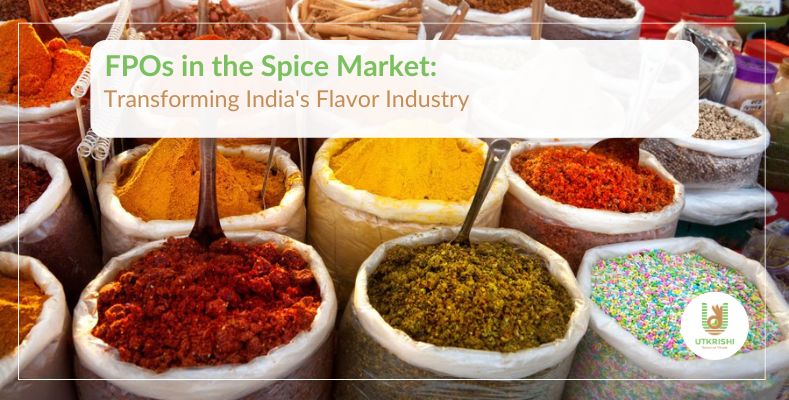India has long been known as the “Land of Spices,” with a rich history in spice cultivation and trade that dates back thousands of years. Spices like turmeric, cardamom, black pepper, and cumin are not only integral to Indian cuisine but are also key export commodities. However, the spice market has traditionally been dominated by large traders and middlemen, often leaving small and marginal farmers with low returns. Enter Farmer Producer Organizations (FPOs), which are playing a crucial role in reshaping the spice market in India by empowering farmers, improving market access, and ensuring better price realization.
The Role of FPOs in the Spice Market
FPOs are collective organizations formed by farmers to pool their resources, aggregate produce, and collectively market their goods. In the context of the spice market, FPOs enable smallholder farmers to bypass intermediaries and directly access larger markets, both domestically and internationally. This collective approach not only improves the bargaining power of farmers but also ensures that they receive a fair share of the profits.
Enhancing Quality and Standardization
One of the significant challenges in the spice market is maintaining consistent quality and standardization, which is crucial for both domestic and export markets. FPOs are instrumental in addressing this challenge by providing farmers with access to training, quality inputs, and infrastructure for processing and storage. Through collective efforts, FPOs can ensure that the spices meet the stringent quality standards required by global markets, thereby enhancing the competitiveness of Indian spices.
For instance, turmeric FPOs in states like Tamil Nadu and Telangana are known for producing high-quality turmeric with consistent curcumin content, which is a key factor in its market value. Similarly, cardamom FPOs in Kerala have been successful in producing premium-grade cardamom that commands higher prices in international markets.
Value Addition and Branding
Beyond improving quality, FPOs also focus on value addition and branding, which are critical for increasing the market value of spices. Many FPOs have started processing raw spices into value-added products like spice powders, essential oils, and blends, which can be marketed under a collective brand. This not only increases the revenue potential for farmers but also helps in creating a unique identity for their produce.
For example, an FPO in Rajasthan specializing in cumin has developed its brand of organic cumin powder, which is sold in premium markets both in India and abroad. Such initiatives not only boost the income of farmers but also contribute to the recognition of Indian spices on a global scale.
Access to Markets and Finance
One of the most significant benefits of FPOs is improved market access. By aggregating produce, FPOs can negotiate better prices with buyers and reduce transaction costs. They also have better access to institutional finance, which is often a major hurdle for individual smallholder farmers. The Indian government, through various schemes, provides financial assistance and subsidies to FPOs, enabling them to invest in infrastructure, technology, and market linkages.
In the spice market, this access to finance has enabled FPOs to invest in cold storage facilities, drying units, and packaging plants, which are essential for maintaining the quality and extending the shelf life of spices. Moreover, with government-backed initiatives like e-NAM (National Agriculture Market) and other digital platforms, FPOs can now reach buyers across the country and even internationally, bypassing traditional middlemen.
Challenges and the Way Forward
While FPOs have made significant strides in the spice market, they still face challenges such as limited access to advanced technology, market volatility, and stringent quality standards in export markets. However, with continued government support, capacity building, and the adoption of innovative practices, FPOs are well-positioned to overcome these challenges.
The future of FPOs in the spice market looks promising, with the potential to not only improve the livelihoods of thousands of smallholder farmers but also to enhance India’s standing in the global spice trade. As more farmers come together under the FPO model, the spice market is set to become more inclusive, competitive, and sustainable.
Conclusion
FPOs are revolutionizing the spice market in India by providing small and marginal farmers with the tools and resources they need to thrive. From improving quality and standardization to enhancing market access and adding value, FPOs are ensuring that the benefits of India’s rich spice heritage are shared more equitably among those who cultivate them. As this movement grows, it will play a crucial role in sustaining the livelihoods of farmers and boosting India’s position as a global leader in the spice trade.


